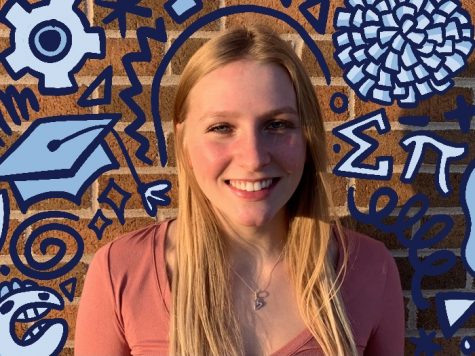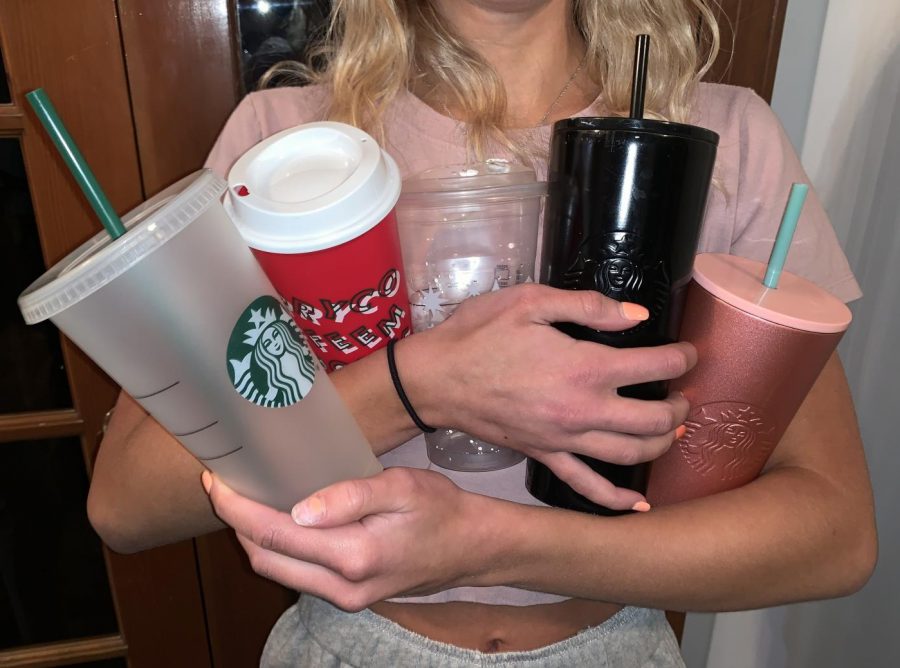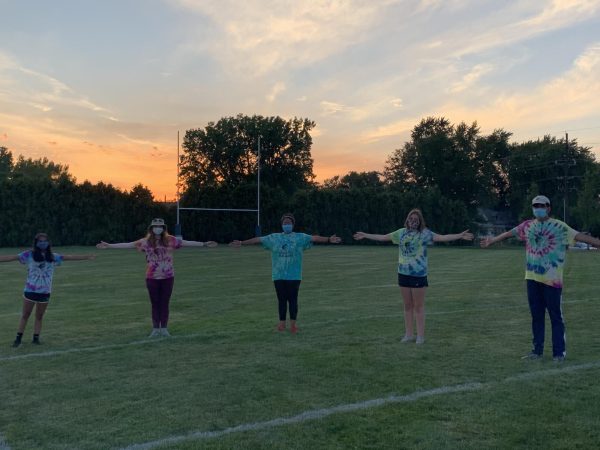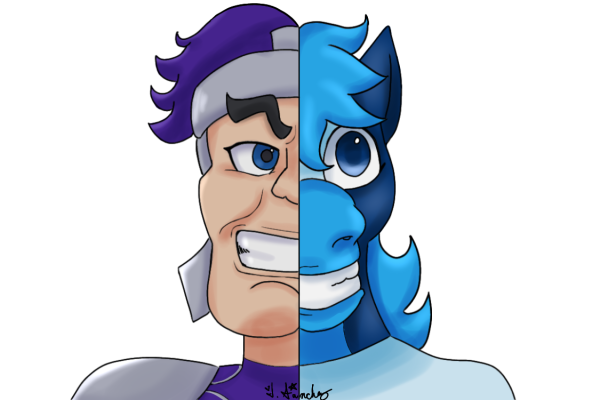Caffeine addicts: Teens tripling recommended intake to get through day
According to the American Academy of Pediatrics, teens should drink a max of 100 mg of caffeine a day.
She glances at the clock on her dashboard as she pulls into the drive-thru, eight minutes until class starts; that’s maybe enough time to get her coffee and still be on time. Of course this was a risk she was willing to take as she desperately wanted a cup of caffeine. She hurried through the school parking lot and entered the halls as another student or staff member holding their morning coffee.
According to the American Academy of Pediatrics, teens should drink a max of 100 mg of caffeine a day—one cup of coffee. A Dunkin’ Donuts medium iced coffee has almost triple that amount.
There are many negatives effects to drinking large amounts of caffeine such as increased anxiety, disrupted sleep patterns, raised blood pressure and heart problems. These impacts are more dangerous to teens because their recommended caffeine serving per day is one fourth that of adults.
The coffee industry, with leading contenders of Starbucks and Dunkin’, have piqued the interest of many teens. These companies market their products to both adults and teens, easily drawing in consistent customers. Social studies teacher Derek Hoovel has noticed an increase in teens drinking coffee in his classes.
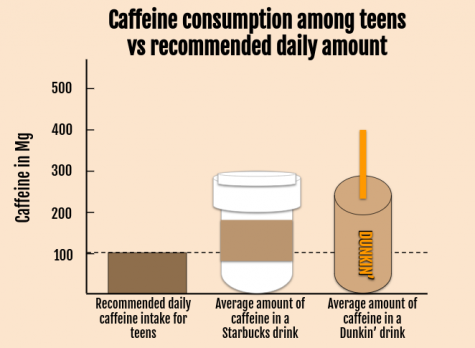
“Teens are definitely drinking more coffee but not your traditional cup of joe, now it is more of the fancier, sweeter drinks. Starbucks and Dunkin’ have definitely done a good job of marketing to teens, whenever I am at one of their stores there are often just as many teens as adults,” Hoovel said.
What can start off as a fun social event with friends can lead to a reliance on caffeine. Many people experience caffeine withdrawals when they are used to their daily servings. Senior Riley Vondrasek had to work to quit her coffee addiction.
“I started drinking [coffee] daily during Sophomore year. When I cut it off [junior year] I actually tried to not hangout with people as much because I knew that I had a shorter temper; it took me three weeks for me to feel better again. I try not to drink coffee as much now as I did to keep me from being addicted as I was; at that time [if I went without coffee] I would get headaches or be more anxious,” Vondrasek said.
Not only are there negative effects on your body, but the prices can add up quickly when constantly buying from coffee shops. Senior Julia Grippo realized the toll these purchases were having on her bank account.
“I used to go out and buy coffee every single day of the week. This took a dent out of my bank account because I was spending $3-6 on coffee every day. So, I started making coffee at home and still do have it everyday, but only buy it two days of the week,” Grippo said.
Many students even find themselves changing their schedules to fit their daily caffeine in. Senior Caleigh Esposito shares that getting her morning coffee has made her late to events before.
“Coffee is often an inconvenience for me because I know there will be consequences, such as migraines, if I don’t have at least 1-2 cups a day. It can be a pain when I need to be somewhere and making espresso takes five minutes I don’t have,” Esposito said.
Aside from coffee, there are other caffeinated beverages teenagers consume such as energy drinks. Energy drinks are seen by health specialists as possibly more dangerous because of their high caffeine levels in a smaller serving. Many athletes such as senior Matt Scolan view energy drinks as a great source of energy before a workout.
“I drink Bang energy drinks four to five days per week, and no more than one per day. I normally only drink them if I plan on working out or doing something that may require an extra burst of energy. When I drink them I definitely feel focused and hyper,” Scolan said.
If taken in moderation, caffeine can have health benefits such as increased energy and is thought to be linked to better memory. The most important factor being to limit one’s intake.
Even with both the negative and positive effects of caffeine in mind, daily drinkers do not show signs of changing their ways. Science teacher Stephen Zownerega drinks on average eight cups of coffee a day.
“I look forward to it every day; it makes me happy when I drink it. [The caffeine] is definitely a drug. I get a caffeine headache when I don’t drink my coffee for the day,” Zownerega said.
Whether it is the taste, the routine, the extra energy or all of the above people love their coffee.
“Coffee is something that is on my mind quite often. When I go to bed I get excited and am thinking about the coffee that I am going to have in the morning. Whenever I have coffee it definitely boosts my mood,” Grippo said.

